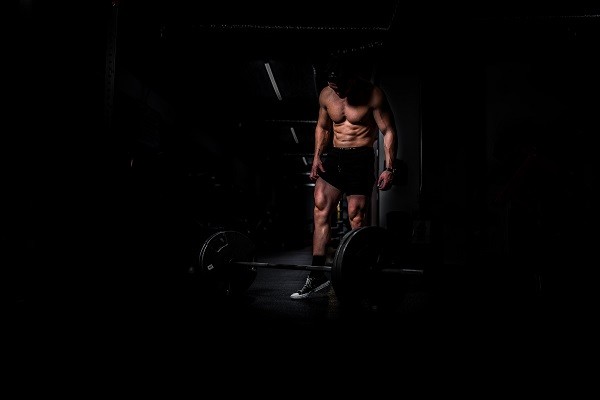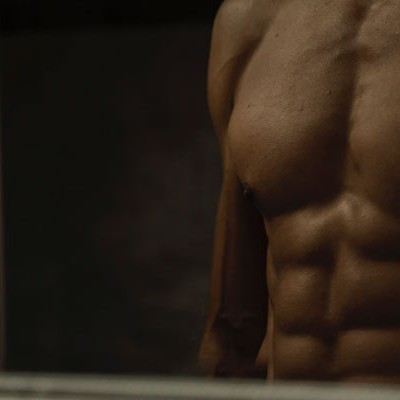Should We Pre-exhaust Our Chest Before Training?

Does pre-exhaustion training work for muscle growth?
The idea of pre-exhaustion training makes sense; begin with an isolation exercise right before a compound exercise to "pre-exhaust" the muscle and prime it ahead of the next lift. The muscle will therefore be activated and more prepared for a maximal change in strength and size.
For example, Bulk Nutrients customer Gerry performs dumbbell flies (isolation movement) for his chest, before moving into a bench press (compound movement).
But sadly, according to science, this doesn't work.
This study utilised thirty-nine trained subjects (nine male and thirty female) who performed resistance training for 12 weeks. They were split into three groups:
- Group one: Pre-exhaustion training
- Group two: Performed the same exercises but with a rest period in between sets
- Group three: Performed the compound movements BEFORE the isolation exercises
The researchers found no significant differences in strength or body composition. They concluded:
"Pre-exhaustion training offers no greater benefit to performing the same exercises with rest between them compared with exercises performed in an order that prioritises compound movements."
Pre-exhaustion training for the chest
But what happens if we pre-exhaust the supportive muscles ahead of a compound lift? Does that make a difference?
And what if we rest in between the isolation movement and compound movement, and don't jump right into the compound movement like in the previous study?
Well, this study investigated these very things, by having subjects do the following BEFORE a bench press movement:
- Incline dumbbell flies
- Front deltoid raises
- lying triceps extension

And this was all after a session where their one-rep max was determined on the flat bench press. Moreover, the subjects had at least 3 years of resistance training experience, which is terrific when considering the validity of the results.
So, what did they find?
No differences in chest activation.
But interestingly, what they did find, was that the triceps were worked harder with the pre-exhaustion routine.
With this in mind, if you like to train chest and triceps together, then performing a lying triceps extension ahead of a bench press is suitable.
Should we train the chest with dumbbells or barbells?
So, we know pre-exhaustion won't help us, but other research into maximal chest activity tells us that dumbbells are likely better than their barbell alternatives.
This was discovered amidst research that examined tricep extensions prior to these chest exercises:
- Smith machine bench presses + Triceps extensions
- Barbell bench presses + Triceps extensions
- Dumbbell bench presses + Triceps extensions
All bench press exercises were done at four sets at their 10-repetition max. The tricep extensions were done on the cable pulleys, performed at 4 sets with their 10-repetition maximum load. The 19 healthy male subjects rested two minutes in between sets and exercises.

And they found:
- Higher reps were evident for the dumbbells in comparison to the barbells.
- For the tricep extensions, more reps were seen when it was done after the barbell bench press, followed by the dumbbells, and the smith machine last.
- This means that the smith machine does NOT isolate your chest very well! It means you cheat the reps by calling upon your triceps (which are then worn out on the following tricep exercise).
So practically speaking, dumbbells are the best at isolating our chests and should feature in our chest workouts.
This is because it doesn't call upon our front deltoids and triceps as much.
However, given the barbell bench presses call upon both the front deltoids and triceps rather well as noted in the research, that may be the best for overall upper-body development. The smith machine should really be left out of your routine, given it doesn't seem to isolate the chest well at all.
A great series of exercises for the chest could be:
- Incline Dumbbell presses
- Flat Barbell Bench presses
- Cable Flies
**(sets and reps are dependent on your lifting experience).
The bottom line is that the current body of research points to pre-exhaustion training NOT increasing chest activation, muscle growth, or strength. Moreover, dumbbells are better for chest activation, whilst barbell bench presses are better at calling upon your front deltoids and triceps.
For this reason, barbell bench presses might develop the upper body as a whole better than dumbbells. However, a good chest workout will incorporate both. At this point in time, pre-exhaustion training is not recommended to enhance muscle size.

Dayne Hudson
Like many, Dayne was once desperate to lose weight and get into shape. But everyone he asked, everything he read, lead to the same place... nowhere.
His journey started there - researching science journals and completing a Sports Nutrition Specialist qualification so he could make weight loss easier.
References:
- Farias DA, Willardson JM, Paz GA, Bezerra ES, Miranda H. Maximal Strength Performance and Muscle Activation for the Bench Press and Triceps Extension Exercises Adopting Dumbbell, Barbell, and Machine Modalities Over Multiple Sets. J Strength Cond Res. 2017 Jul;31(7):1879-1887. doi: 10.1519/JSC.0000000000001651. PMID: 27669189.
- Fisher JP, Carlson L, Steele J, Smith D. The effects of pre-exhaustion, exercise order, and rest intervals in a full-body resistance training intervention. Appl Physiol Nutr Metab. 2014 Nov;39(11):1265-70. doi: 10.1139/apnm-2014-0162. Epub 2014 Aug 5. PMID: 25092528.
- Gołas, A, Maszczyk, A, Pietraszewski, P, Stastny, P, Tufano, JJ, and Zaja˛c, A. Effects of pre-exhaustion on the patterns of muscular activity in the flat bench press. J Strength Cond Res 31 (7): 1919–1924, 2017





























